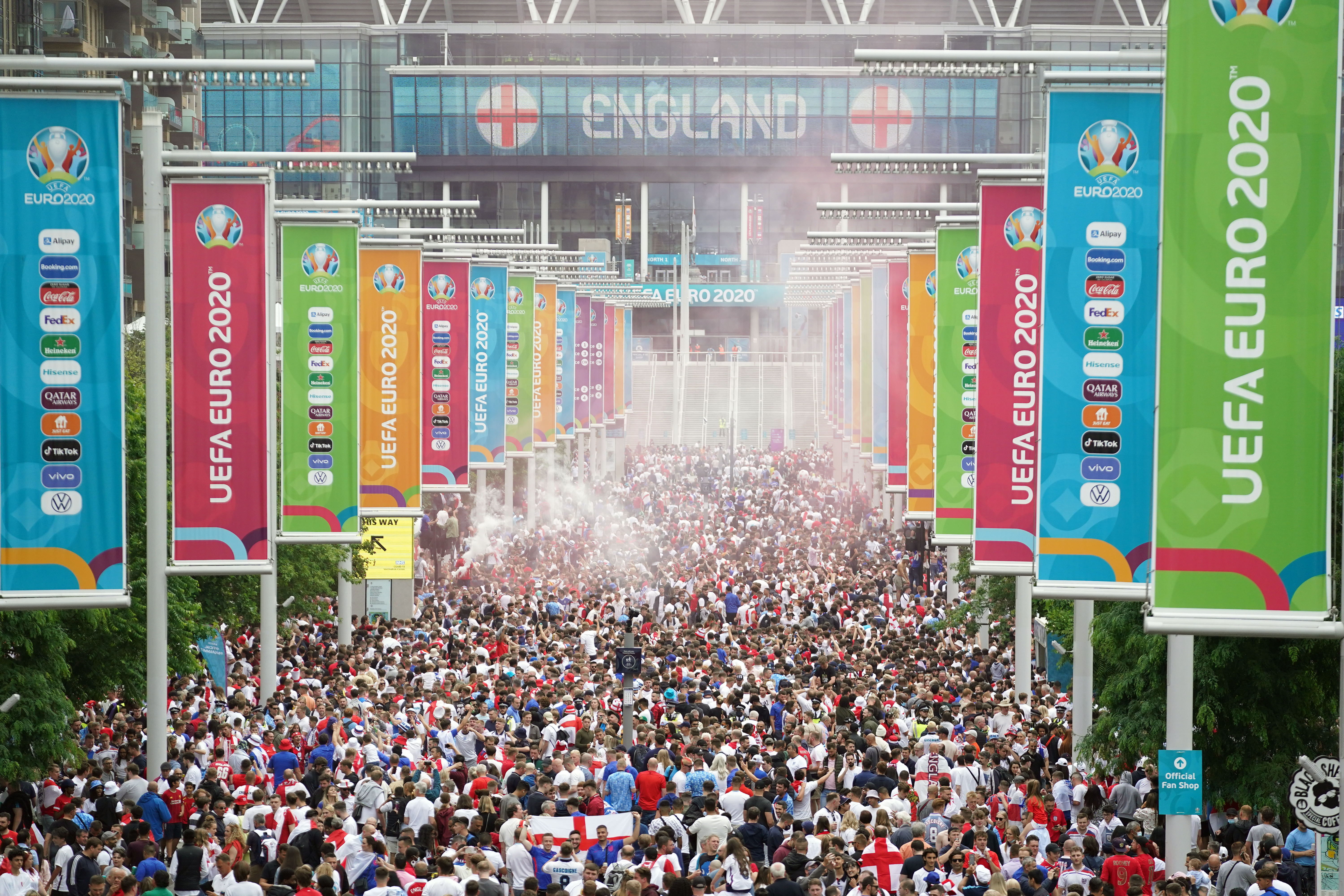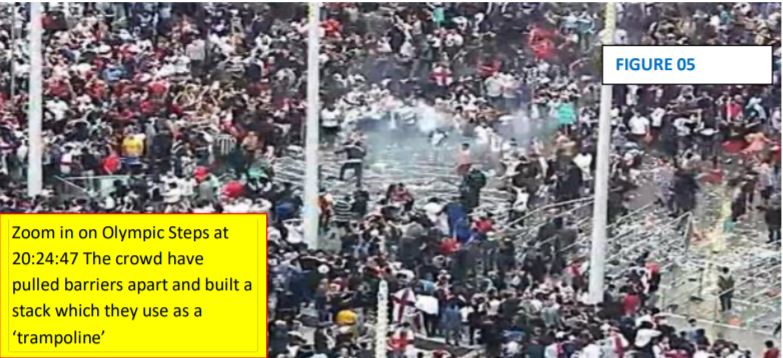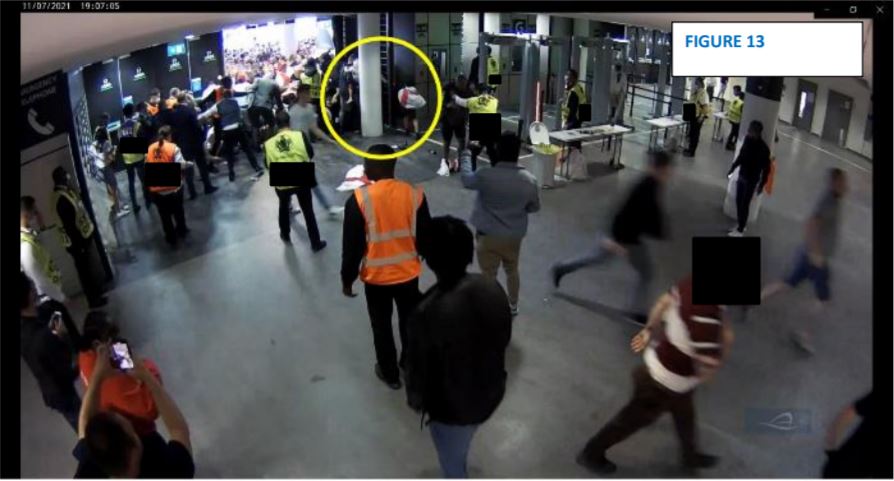Disorder at Euro 2020 final could have led to fatalities, says review

More than 20 “near-misses” that could have resulted in serious injury or death were identified in a review of the chaos at the Euro 2020 final.
The reckless behaviour of ticketless individuals who tried, and in some cases succeeded, to gain entry to Wembley for the England v Italy match on July 11 created the extremely high likelihood of fatalities, a security expert who contributed to the Baroness Casey review said.
The review found there was a collective failure from all those involved in organising the final to plan for the worst-case scenario, but did not apportion blame to any single agency. Instead, she held the individuals involved in the disorder responsible.
The review found police were deployed too late when ticketless supporters had started gathering outside Wembley from 9am and Metropolitan Police commander Rachel Williams said she was “deeply sorry” to the fans who encountered “unacceptable scenes of disorder”.
The Football Association, which commissioned the review, has been ordered to bring about a “sea change” in the attitudes of supporters, and its chief executive Mark Bullingham apologised to those innocent individuals caught up in the chaos.
Around 2,000 ticketless individuals were found to have gained entry to Wembley, with 400 of those ejected, but a dire situation could have been made much worse by an England victory, multiple contributors to the review said.
A ticketless group of 6,000 were believed to be preparing to storm the stadium as legitimate ticket-holders were trying to leave.
The best features, fun and footballing quizzes, straight to your inbox every week.
An official from the London emergency services said the consequences of an England win would have been “horrific”, and that a major incident would have been declared at Wembley and in central London.

The official added: “I can guarantee that we would have been on our knees.”
An official from the Sports Grounds Safety Authority told the review: “Thank God England lost. If they had won you would have to open the doors to let people out and the stadium would have been stormed.”
An FA official recalled individuals being stood like “zombies”, not even watching the game on their phones, waiting to get in.
Ticketless individuals were found to have gained entry by tailgating or involvement in one of 17 mass breaches of disabled access gates and emergency fire doors identified by the review, which “jeopardised the lives of legitimate supporters and staff”.
The breaches stretched from 90 minutes before kick-off up to the penalty shoot-out, the review found, with disabled supporters particularly affected.
One individual even impersonated a steward and hijacked a disabled child in a wheelchair, separating him from his father in an attempt to gain entry to the stadium.
Security expert Eric Stuart identified a series of near-misses caused by reckless behaviour and said: “The likelihood of someone being seriously injured in what we know to be high pressure crowd situations was very high.

“The possibility of likelihood fatalities was extremely high and happened repeatedly during the course of the day.”
Stuart highlighted just a handful of instances where lives could have been lost in a briefing which followed the review’s publication.
A woman lay unconscious following a surge at the Olympic Steps and had to be dragged to safety by police officers, who were then attacked as they tried to provide assistance.
An image showed an individual jumping on a pile of fallen barriers which had become a trip and tangle hazard, and using them as a trampoline. Stuart said others sought to throw these toppled barriers at police and stewards, and were only stopped because other individuals intervened.
A young boy suffered a seizure after crawling out from a pile of bodies three or four deep caused by a surge two and a half hours before kick-off at the Spanish Steps in the north-west corner of the stadium.
Had that happened 40 minutes later, Stuart said, around seven times as many fans would have been present.

Another man holding a young child was caught in a surge through an emergency fire door which had been forced open, and had to be supported by a steward just before he fell. He had another, slightly older child with him and was seen in one image trying to extricate a third child from the surge.
Baroness Casey has called on the Government to create a new category for football matches of national significance, and Bullingham agreed for the need to see such matches “through a different lens” in future.
The review also called for agencies to agree on who is accountable within Zone Ex of stadia – the last mile around the ground.
Baroness Casey agreed with Bullingham that the disorder did not mean the FA and the authorities could not be trusted to hold major events in future, with a UK and Ireland bid for the 2030 World Cup finals under consideration.
“Hindsight is one of the most amazing things that means that next time you plan for something you can learn from the previous experiences,” she said.
“There were collective failures to see the bigger picture, the storm was coming. The lessons that are learned from that actually make London and the country a better place than probably anywhere else because we’re never going to let this happen again.”
The review found the unique circumstances around the match created by the easing of Covid-19 restrictions and England’s first final appearance in 55 years created a “perfect storm”.
 Join The Club
Join The Club





